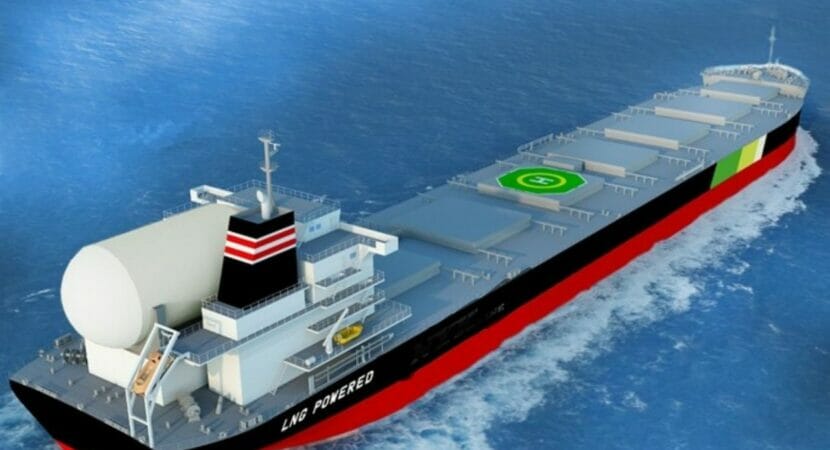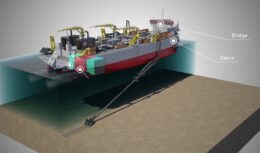
A MOL accumulators is a japanese shipping company which aims to achieve zero net GHG emissions by 2050.
For this, the company has established an audacious goal that drives its actions towards the sustainability of the naval sector. The company has already ordered and built freighters, bulk carriers, oil tankers, barges and a tug powered by LNG, which is short for liquefied natural gas.
With the ever more latent concern in relation to sustainability, the marine industry has been looking for cleaner fuel alternatives. LNG is one of these options, as it is considered a cleaner fuel than diesel oil. It is produced from conventional natural gas, which undergoes a liquefaction process, enabling its use as fuel.
A MOL already has 17 ocean-going ships powered by LNG in its fleet, which represents a great advance towards the objectives of sustainability and environmental preservation. The company has ordered a new dual-fuel coal carrier capable of running on LNG.
Ambitious goals and objectives
The company has set the goal of owning at least 90 ships powered by LNG or methanol in its fleet by 2030. This is a very daring goal, but it shows the company's willingness to make a difference in terms of sustainability in a market as important as the shipbuilding sector.
Methanol is another alternative fuel, which offers a clean and sustainable alternative for shipping. It is produced from renewable sources such as biomass and can be used in internal combustion engines on ships, as well as LNG.
The goals established by MOL are really ambitious, but the company has shown a real commitment to sustainability and environmental preservation. The company knows that, in order to reach its goals, it is fundamental to invest in clean and alternative technologies, as is the case for LNG and methanol.
Clean fleet and concern for the environment
A marine industry traditionally recognized as a polluting sector, but concern for the environment has been increasingly present in the market, especially in relation to navigation. MOL is at the forefront of this movement by investing in clean and sustainable technologies such as LNG and methanol.
This concern for the environment it has also been driven by the efforts of governments in several countries that have encouraged the adoption of cleaner fuels and the reduction of emissions. However, the MOL has gone further in establishing its own goals and objectives towards sustainability.
The company has also invested in other renewable energy sources to reduce your carbon footprint, such as wind and solar power. It has also been working on solutions to improve the energy efficiency of its ships, through more advanced and efficient technologies.
The sustainability in naval sector It is a fundamental issue for the preservation of the environment. MOL is leading this change by building a clean and sustainable fleet, based on less polluting and alternative technologies that significantly reduce GHG emissions.









How embarrassing! Before writing any article,…
TO COMPLETE THESE THEY PUT GENERAL WATERMELON🍉 TOMÁS…
Approved. Where to find? What is the estimated price?…
WHAT A DISSERVICE! The solution to waste…
Very cool!
35 tons of gold went to…
Throwing a lot of rubbish into the sea...
The right is extremely trustworthy. Kkkkkkkkkkkkkk